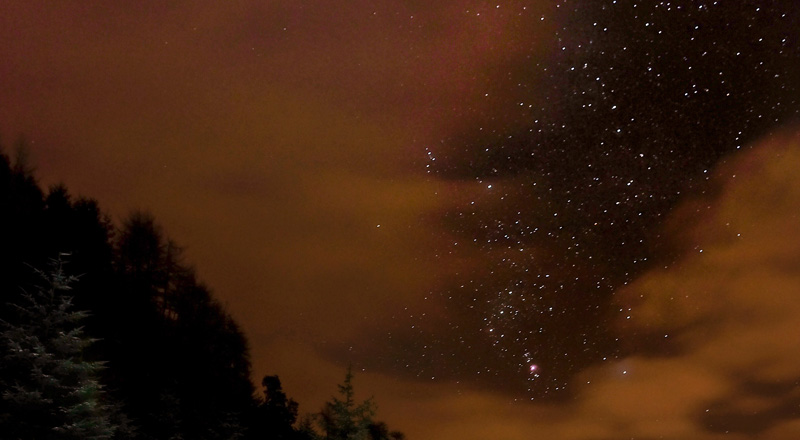Those Ancient Gates
Tena tātou katoa e te iwi mīhana… (Greetings to all the people in mission),
This month’s whakataukī (proverb) can be understood both positively and negatively: “Tini whetū e iti pōkēao” (A multitude of stars, a small dark cloud).
This is the shortform of a longer whakataukī, “He iti pou kapua ka ngaro, ka huna tini whetū i te rangi” (Though a cloud may be small, it is sufficient to obscure many stars in the sky). Here come some mixed metaphors…
The whakataukī is commonly understood positively as a few overcoming the many (think: Gideon’s army). Negatively, it can depict a dark minority view that obscures a brighter reality. I have pondered both of these perspectives while following global conversations about Christian identity, unity, responsibility and mission over recent weeks.
I have noted afresh that a type of pessimistic tribalism, which polarises, fractures and divides the people of God, is rapidly growing and eclipsing the bright evidence of God at work in diverse ways. To inverse the metaphor, ‘disciplined ones’, full of faith, can overcome those artificial ‘stars’ that shine a cultural exclusivity in the spotlight of today’s media—promoting narrow understandings of Christianity that diminish the possibility of God’s grace emerging in ways different from what they know in their cultural reality.
I am compelled to consider the Kingdom wide open to all.
Don’t get me wrong, l hold to the core tenets of Evangelical faith and I firmly believe there is a boundary to the Kingdom of God—that you must pledge and maintain allegiance to Christ in order to consider yourself a citizen of the Kingdom. To “seek first the Kingdom” is to live in total submission to the King. Yet, when I read Psalm 24, that great revelation of God’s reign, I am compelled to consider the Kingdom wide open to all. “Open up ancient gates! Open up ancient doors, and let the King of glory enter” (Ps. 24:7,9). When the victorious King is in residence, peace/shalom reigns. So the gates can remain open without fear (cf. Rev. 21:25). Let “whosoever will” come, dwell with the King (cf. Rev. 22:17).
In Psalm 24, alongside ideas in Revelation 21 and 22, the ancient gates/doors refer to access, a removal of barriers. The mountain of the Lord and the holy place, a place of blessing and right relationship with God, is open for those who have clean hands and pure hearts (in other words, the penitent in submission to Christ). This is good news, but a now/not yet reality that we must appropriate and live out.
Too much denominational and doctrinal division is rooted in fear not faith, designed to keep the Kingdom’s entryways shut.
Too much denominational and doctrinal division is rooted in fear not faith, designed to keep the Kingdom’s entryways shut. It is human nature to create norms that define the boundaries of belonging for a group, whether that be a whole culture or a sub-section like a sect or a gang. At best, this helps create a sense of stability and cohesion. At worst, it generates pride, entitlement, and the objectification of ‘others’ (outsiders) who are then easily seen as less-than.
Too often, missionaries and evangelists have carried out their calling with a motive to go to ‘others’ and help them become like ‘us’, trying to conform the ‘others’ to the norms of the sent-one’s particular group. But the gospel is not a programme of socialisation. Conversion is not a transfer of culture. Rather, the gospel is a seed of faith, hope and promise planted in unique soil that takes time to mature according to the unique context in which it germinates. Conversion is the (often extended) process of conforming a new citizen of the Kingdom to Christ within their unique cultural context, not conforming them to the culture of the message bearer. Therein lies the seed of difference—God’s grace manifests as uniquely in cultural contexts and groups as it does in individuals (cf. 1 Peter 4:10ff).
After I started writing this month’s blog, Alfred Ngaro (NZ Member of Parliament) presented a challenge to the 1,000+/- believers gathered on the steps of our Parliament under the banner of Jesus for NZ to present a petition for the restoration of Parliamentary prayer in Jesus’ name. He asked them to put aside differences and focus on that which binds us to Christ, citing more challenging times ahead for the Church.
I believe that as we acknowledge the unique grace of God in other Kingdom citizens we will more easily be able to hold their hand in unity. If we can agree on the Biblically mandated core aspects of our common faith we will stand stronger together and represent Christ better throughout the world. This is as true for culturally different expressions of Kingdom faith as it is for denominationally or doctrinally different expressions. We are richer together.
Let’s not let the gloomy minority eclipse the bright shining stars we are called to be (cf. Phil. 2:15) and let’s work to obscure artificial lights that do not represent Christ and His Kingdom well. Let grace prevail to keep open those gates as we continue to plant the seeds of the gospel further out into a world barren without Christ, encouraging one another to #stayonmission.
Ma te Atua e manaaki ki a koutou (may you all experience the very best things from God),
Jay






